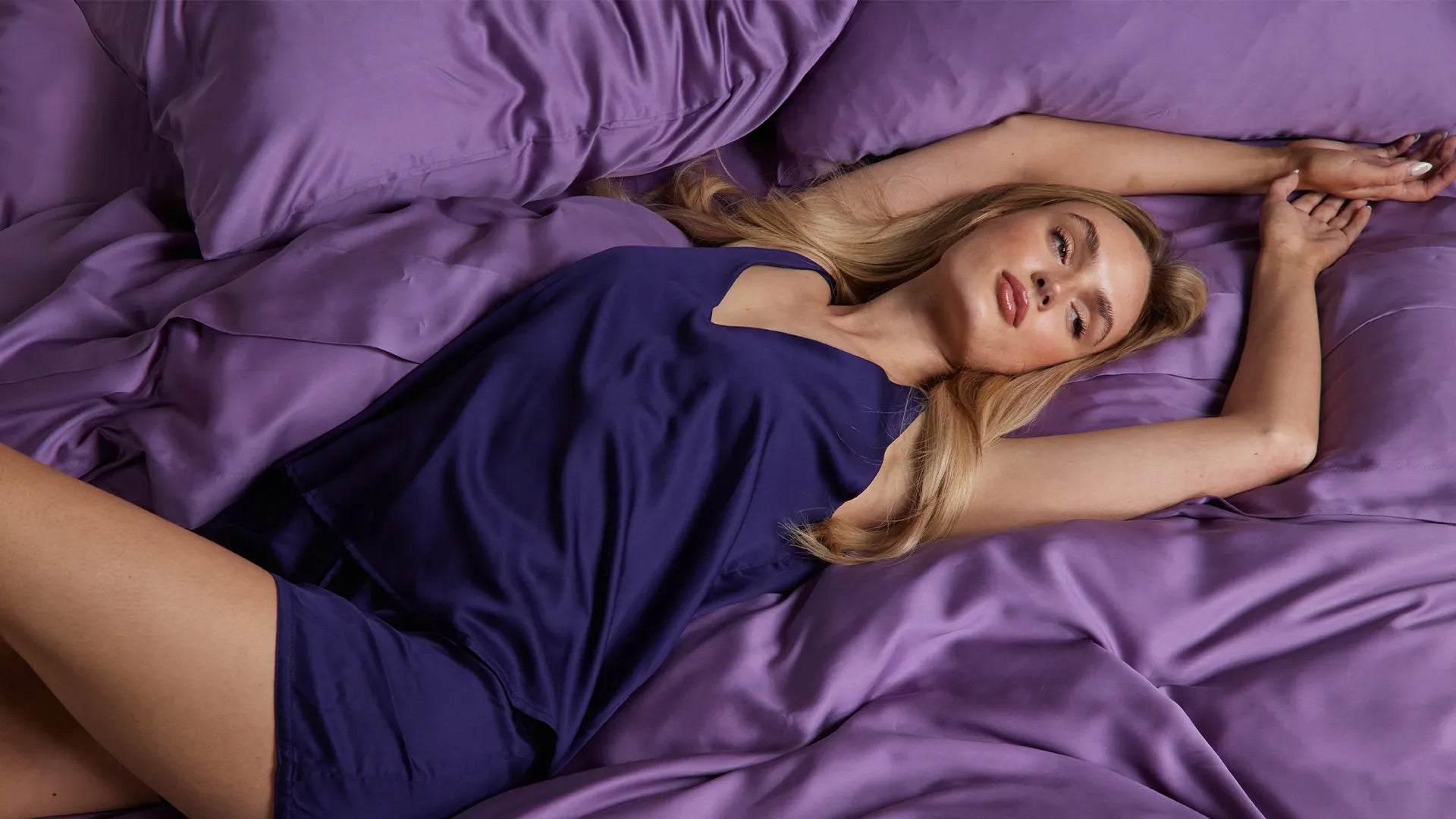In the evening, when your eyes detect that it's dark, the hormone melatonin is released. As well as triggering feelings of tiredness, it also causes your body's temperature to begin dropping. When you finally nod off, your body will continue trying to decrease its temperature by around 2° in total. When it’s time to wake, the body's core temperature will begin rising back to its usual level.
If your body’s core temperature is too high, sweat is produced in an attempt to cool you down. So, what makes your core temperature rise at night? Well, there are some obvious causes and some not so obvious ones. The simplest cause is that it’s too hot in your bed. Thick bedding or mattresses can retain heat and prevent airflow. (Think memory foam designs.) Of course, having another person or pets in the bed can increase heat too.
However, night sweats can also be due to internal processes. For example, the hormonal changes that come with menopause can affect the regulatory system that normally helps lower temperature when you’re sleeping.
Metabolism can also play a role.
The likes of eating and exercising too close to your bedtime can amp up your body’s metabolic rate, disrupting temperature control and sleep quality. According to the American National Health Service, over-heating at night can be caused by medications, like pain relievers and antidepressants. Some conditions, such as anxiety can actually make your sweat glands more responsive which can also potentially lead to night-time sweatiness.
So there are many potential causes of night sweats.Thankfully, there are also plenty of ways to help stay cool at night. Read on for potential remedies to your sleep deficit.
